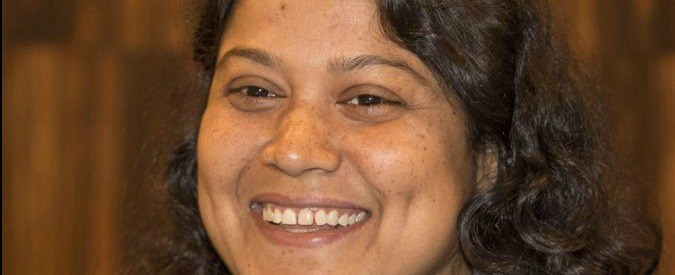
Climate Amazons: Zakia Naznin, environmental migration and climate justice
With respect to matters relating to climate change women should be one of the first points of reference in every discussion on account of their central role in society and their greater vulnerability. On the contrary, in the international debate the representation of women is not proportionate to the risks women are exposed to in the event of environmental disasters. For this reason in the run-up to the 22nd session of the Conference of the Parties (COP22) to the United Nations Framework Convention on Climate Change (UNFCCC) it is important to present the work of female diplomatic representatives or local activists who are achieving outstanding results in the field of climate justice.
The rise in temperature and the increase of disastrous environmental phenomena is forcing more and more people in the world to emigrate in order to survive. Data reported by the Nansen Initiative, a global consulting project on migration and climate change, reveal that between 2008 and 2014 an annual average of 22.5 million people had to emigrate owing to sudden weather-related natural disasters. In any case, this is still only a partial figure as it does not take into account a more a gradual and ‘voluntary’ form of migration representing what may be seen as an adaptation to environments that present a constantly decreasing probability of survival for the populations that live in them.
However, not all individuals exposed to the risks of climate change can emigrate. Women, children and older people are often forced to stay on and fight for their survival. The work of Zakia Naznin, a researcher from Bangladesh, focuses on these vulnerable groups in particular. This anthropologist has years of experience in issues of this kind, in children’s rights, access to safe water resources and climate adaptation programs for rural communities. Her commitment with regard to the status of women has led her to collaborate with UNICEF and the Save the Children Alliance in projects relating to the prevention of child marriage and the abuse of minors.
Between 2006 and 2011 Naznin joined the Bangladesh Centre for Advanced Studies (BCAS) as a senior researcher, expanding her fields of interest to projects concerning
Her work moreover sheds light on the fact that the gender perspective is an essential element in the search for the cause of the vulnerability that characterises certain groups of individuals. As in most developing countries, women in Bangladesh are often responsible for the management of natural resources to ensure a reasonable degree of security for their families with respect to food and nutrition. The socio-cultural norms that relegate women to tasks of a domestic nature and assistance become insurmountable barriers in the presence of the need to find new means of subsistence to survive climate change. The situation of women in Bangladesh is one of the many examples of a failure to achieve climate justice and of consequences of environmental change suffered by people who have no means to find a remedy for such situations.In 2014, accompanied by a group of researchers from the BCAS, Naznin began to cooperate with UN WOMEN, collaborating in an environmental mitigation project for rural communities in Bangladesh. The aims of the initiative are quite clear: ‘Reducing the vulnerability of women suffering from climate change with the provision of options of alternative support’. Within the framework of this project the women of five districts at risk of environmental disaster attended training courses for the preservation of resources, emergency management and the diversification of their sources of income.
The initiative provided Naznin with an opportunity to observe the consequences of migration induced by climate change. “When it comes to migration one can not only focus on men who emigrate, but we must also consider the women who are left behind in their original communities”, says Naznin. “Migration has a major impact on their lives in terms of work, mobility and relations within the community.” In Bangladeshi villages where the UN WOMEN project has been implemented there has been an improvement of environmental resilience and in the living conditions of the population. The basic concept is that it is necessary to support those who are unable to leave their community of origin in order to transform a complex and often tragic issue into an opportunity for change. The lives of these women have not been radically changed but there have been improvements, and this may be considered a starting-point from which more substantial changes can be planned and implemented. The achievement of climate justice thus becomes a catalyst for the full realization of people’s rights, turning the victims of climate change into agents of change, not only for themselves but also for the entire community.
Chiara Soletti
Published for Italian Climate Network on Il Fatto Quotidiano
